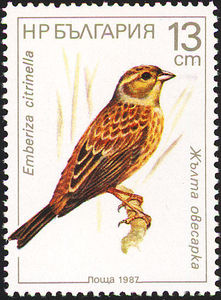Farmland bird populations both in Ireland and across Europe are at their lowest levels since records began, new figures from BirdWatch Ireland and BirdLife Europe reveal. The Pan-European Common Bird Monitoring Scheme has compiled population figures for 145 common and widespread bird species in 25 European countries between 1980 and 2009. Amongst those species covered, farmland birds are the most threatened group, with 20 out of 36 species in decline, and overall numbers at an all-time low, down by 48% since 1980. Some of the species that have declined the most over the last three decades across Europe include familiar farmland birds like Grey Partridge (–82%), Skylark (–46%), Linnet (–62%) and Corn Bunting (–66%). Ian Burfield, European Science and Data Manager for BirdLife Europe, said: “These shocking new figures confirm that farmland birds have halved in number across Europe since 1980. While the rate of decline may have slowed in recent years, it’s clear that attempts to halt the loss have been insufficient, and that massive efforts are needed to reverse the trend.”
In Ireland the situation is no better, with many farmland bird populations continuing to decline. The Countryside Bird Survey (data from which feeds into the European scheme) annually monitors the population levels of our common birds throughout the country on an annual basis. The most recent data recorded the lowest ever levels for Yellowhammer in 2009, while iconic farmland birds such as Skylark and Kestrel have shown significant, long-term declines since the survey started in 1998.
Source: BirdWatch Ireland, 20 August 2015
http://www.birdwatchireland.ie/News/FarmlandbirdsinEuropefalltolowestev…

- Login om te reageren
